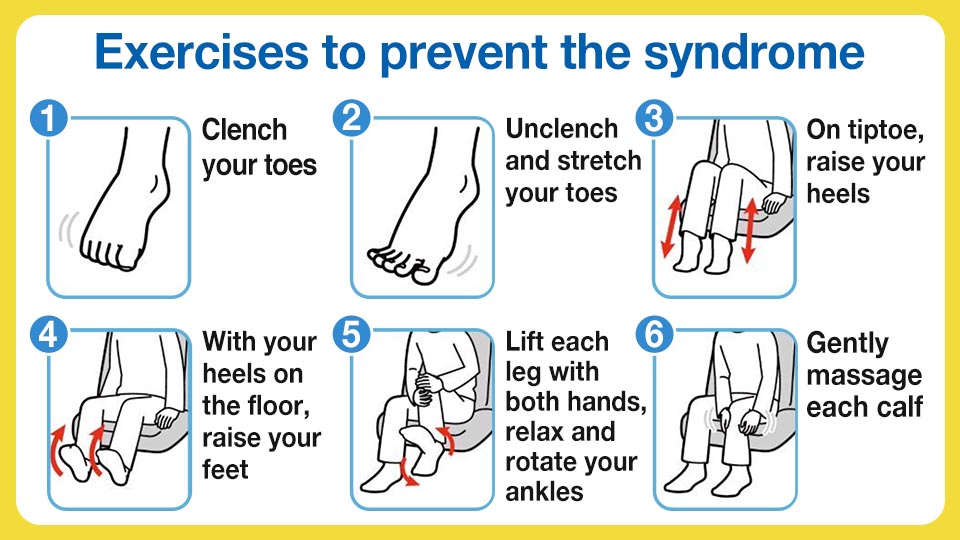What is economy class syndrome?
Professor Morishita Eriko of Kanazawa University serves as a board member of the Japanese Society on Thrombosis and Haemostasis. She says economy class syndrome develops when blood clots form due to poor blood flow and become lodged in blood vessels in the lungs.
In past disasters, such as the 2016 Kumamoto earthquake, some people suffered from the syndrome from the fourth day after evacuating.

Professor Morishita says people in the following groups have a higher risk and caution is required:
- People who remain in a lying position for a long time
- Elderly people
- Obese people
- People undergoing cancer treatment
- People who stay in a cramped position for long periods of time, such as when sleeping in a car
How to prevent the syndrome
Morishita says it is important to avoid staying in the same position for long periods of time. Effective preventive measures include drinking water frequently and exercising once every few hours by bending and stretching your legs, focusing on your calf muscles.

Morishita adds that wearing tight elastic stockings will improve blood flow and prevent blood clots from forming. But she adds that people should remove the stockings immediately if they feel any discomfort or pain when wearing them.

If a blood clot becomes lodged in a blood vessel in the lungs, symptoms such as chest pain, sudden difficulty in breathing, or shortness of breath may occur. In such cases, Morishita says evacuees should not hesitate to seek help from staff at shelters or medical officials nearby.
"Economy class syndrome during evacuation can be prevented by taking the right measures," Morishita says. "In addition to lack of exercise, stress is also one of the causes, so improving the environment in the shelters is one way to prevent the condition.''
